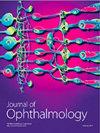元基因组下一代测序在传染性角膜炎诊断中的应用
IF 1.8
4区 医学
Q3 OPHTHALMOLOGY
引用次数: 0
摘要
目的确定下一代元基因组测序(mNGS)技术在诊断和治疗传染性角膜炎(IK)中的优势。方法。回顾性分析2018年8月至2022年12月南京市第一医院眼科收治的共287例IK患者,总结其致病原因、病原学特征、检测方法、治疗方法及疗效。结果显示外伤和异物是IK最常见的病因(144例患者,50.2%)。在 287 名患者中,228 人(79.4%)被确诊为特定病因,包括 110 人(48.2%)真菌感染、44 人(19.3%)病毒感染、42 人(18.4%)混合感染和 30 人(13.2%)细菌感染。以镰刀菌和曲霉菌为代表的丝状真菌最为常见,其次是铜绿假单胞菌、肺炎链球菌等细菌、病毒(单纯疱疹病毒/带状疱疹病毒)和寄生虫。分泌物培养、角膜激光共聚焦显微镜(CM)、mNGS 和病理切片的阳性率分别为 47.3%(133/281)、45.3%(111/245)、83.9%(104/124)和 19.3%(40/207)。mNGS 的细菌和病毒阳性率高于其他方法,真菌阳性率与 CM 相同。结果,214 例(74.6%)治愈,51 例(17.8%)好转,8 例(2.8%)未愈,14 例(4.9%)进行了眼内容物摘除术,总有效率为 92.3%。结论外伤和异物是 IK 的主要原因。mNGS 技术是一种高效、全面的病毒和细菌检测方法,尤其适用于混合感染。本文章由计算机程序翻译,如有差异,请以英文原文为准。
Application of Metagenomic Next-Generation Sequencing in the Diagnosis of Infectious Keratitis
Purpose. To determine the advantages of next-generation metagenomic sequencing (mNGS) technology in the diagnosis and treatment of infectious keratitis (IK). Methods. A total of 287 patients with IK admitted to the Department of Ophthalmology of Nanjing First Hospital between August 2018 and December 2022 were analyzed retrospectively, and the pathogenic causes, etiological characteristics, detection, treatment methods, and efficacy were summarized. Results. Trauma and foreign matter were the most common causes of IK (144 patients, 50.2%). Of the 287 patients, 228 (79.4%) were diagnosed with a specific etiology, including 110 (48.2%) fungal infections, 44 (19.3%) viral infections, 42 (18.4%) mixed infections, and 30 (13.2%) bacterial infections. Filamentous fungi represented by Fusarium and Aspergillus were the most common, followed by bacteria such as Pseudomonas aeruginosa, Streptococcus pneumoniae, viruses (Herpes Simplex Virus/Varicella-Zoster Virus), and parasites. The positivity rates of secretion culture, corneal laser confocal microscopy (CM), mNGS, and pathological sections were 47.3% (133/281), 45.3% (111/245), 83.9% (104/124), and 19.3% (40/207), respectively. The positivity rate of mNGS for bacteria and viruses was higher than that of the other methods, and the positivity rate for fungi was the same as that for CM. As a result, 214 cases (74.6%) were cured, 51 cases (17.8%) improved, 8 cases (2.8%) did not heal, ocular content enucleation was performed in 14 cases (4.9%), and the overall efficacy rate was 92.3%. Conclusion. Trauma and foreign matter are the main causes of IK. The mNGS technology is an efficient and comprehensive detection method for viruses and bacteria, especially for mixed infections.
求助全文
通过发布文献求助,成功后即可免费获取论文全文。
去求助
来源期刊

Journal of Ophthalmology
MEDICINE, RESEARCH & EXPERIMENTAL-OPHTHALMOLOGY
CiteScore
4.30
自引率
5.30%
发文量
194
审稿时长
6-12 weeks
期刊介绍:
Journal of Ophthalmology is a peer-reviewed, Open Access journal that publishes original research articles, review articles, and clinical studies related to the anatomy, physiology and diseases of the eye. Submissions should focus on new diagnostic and surgical techniques, instrument and therapy updates, as well as clinical trials and research findings.
 求助内容:
求助内容: 应助结果提醒方式:
应助结果提醒方式:


